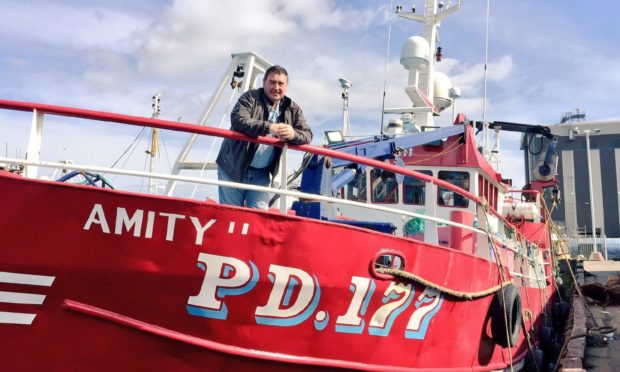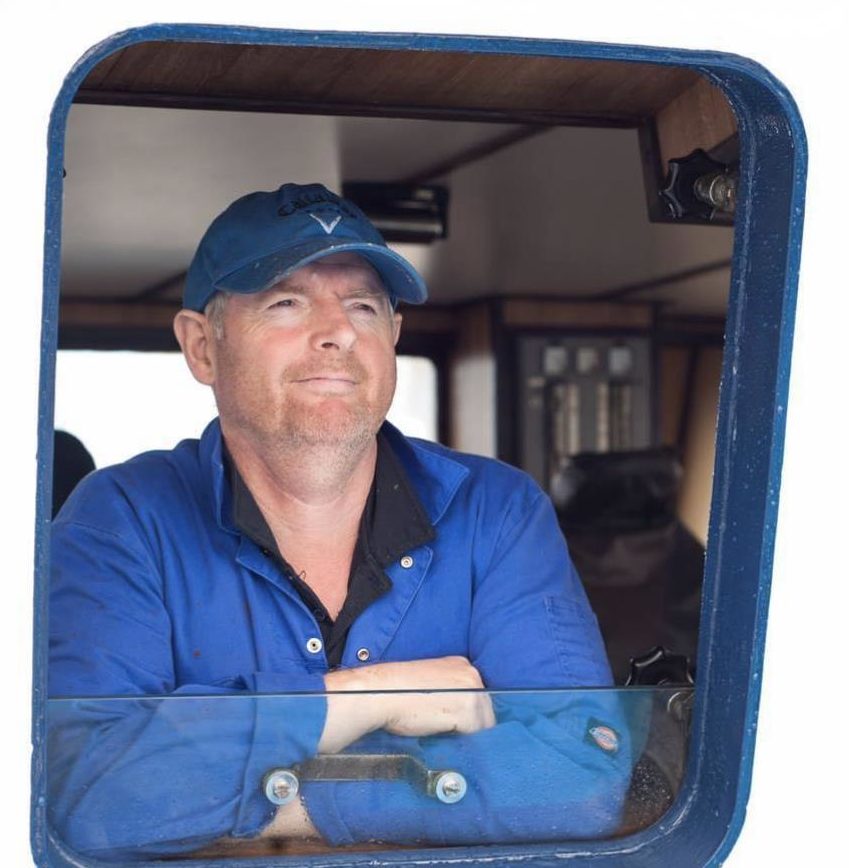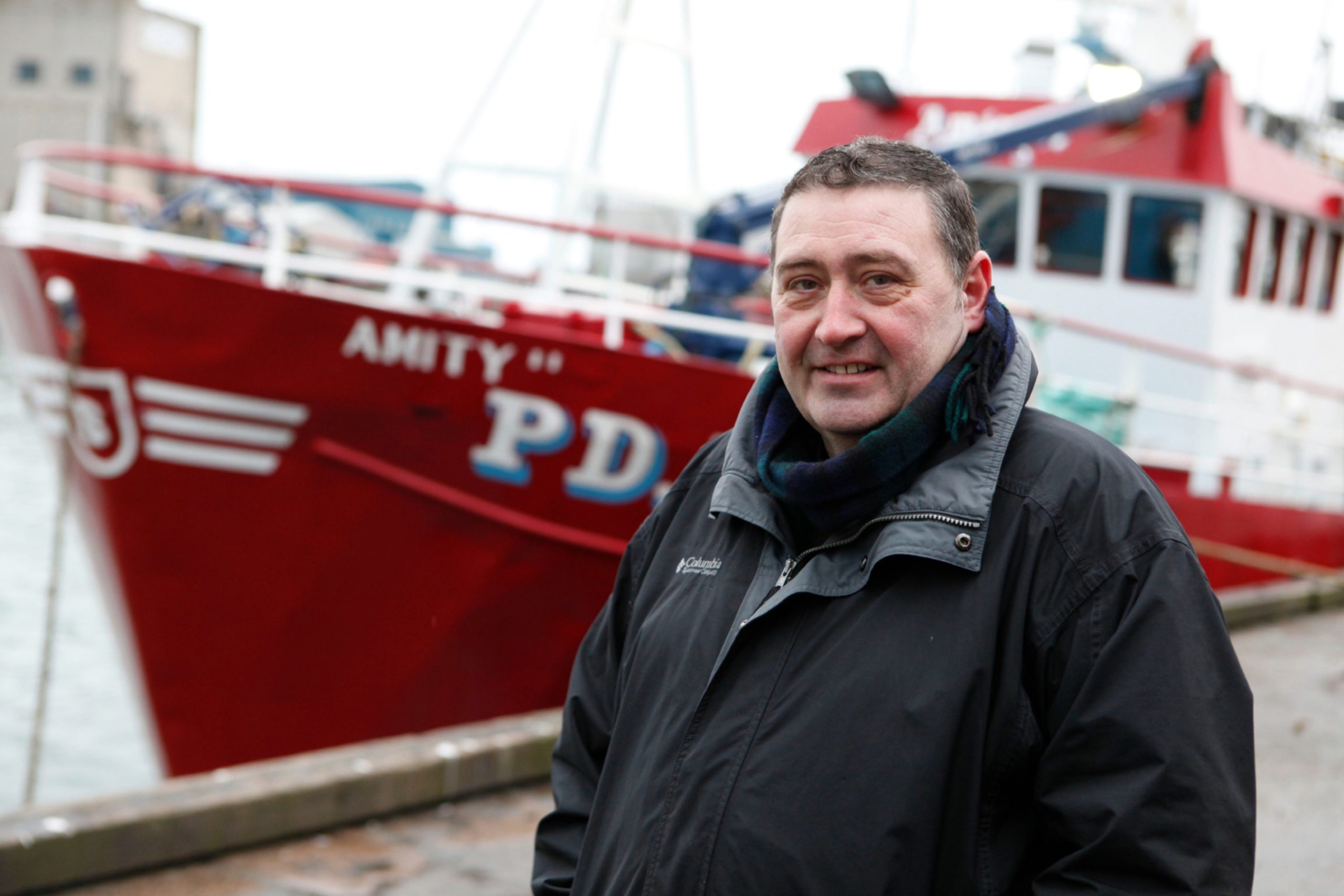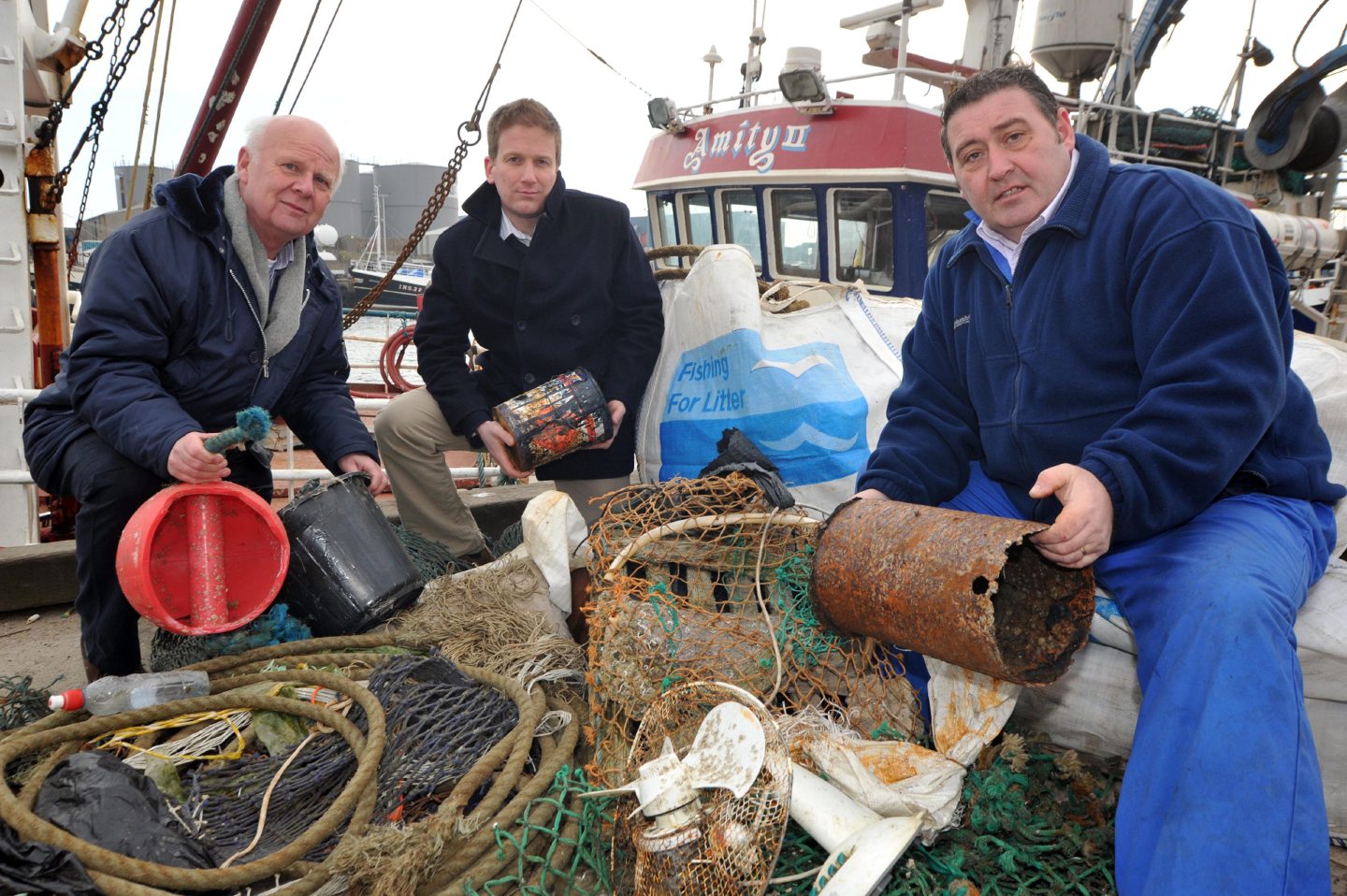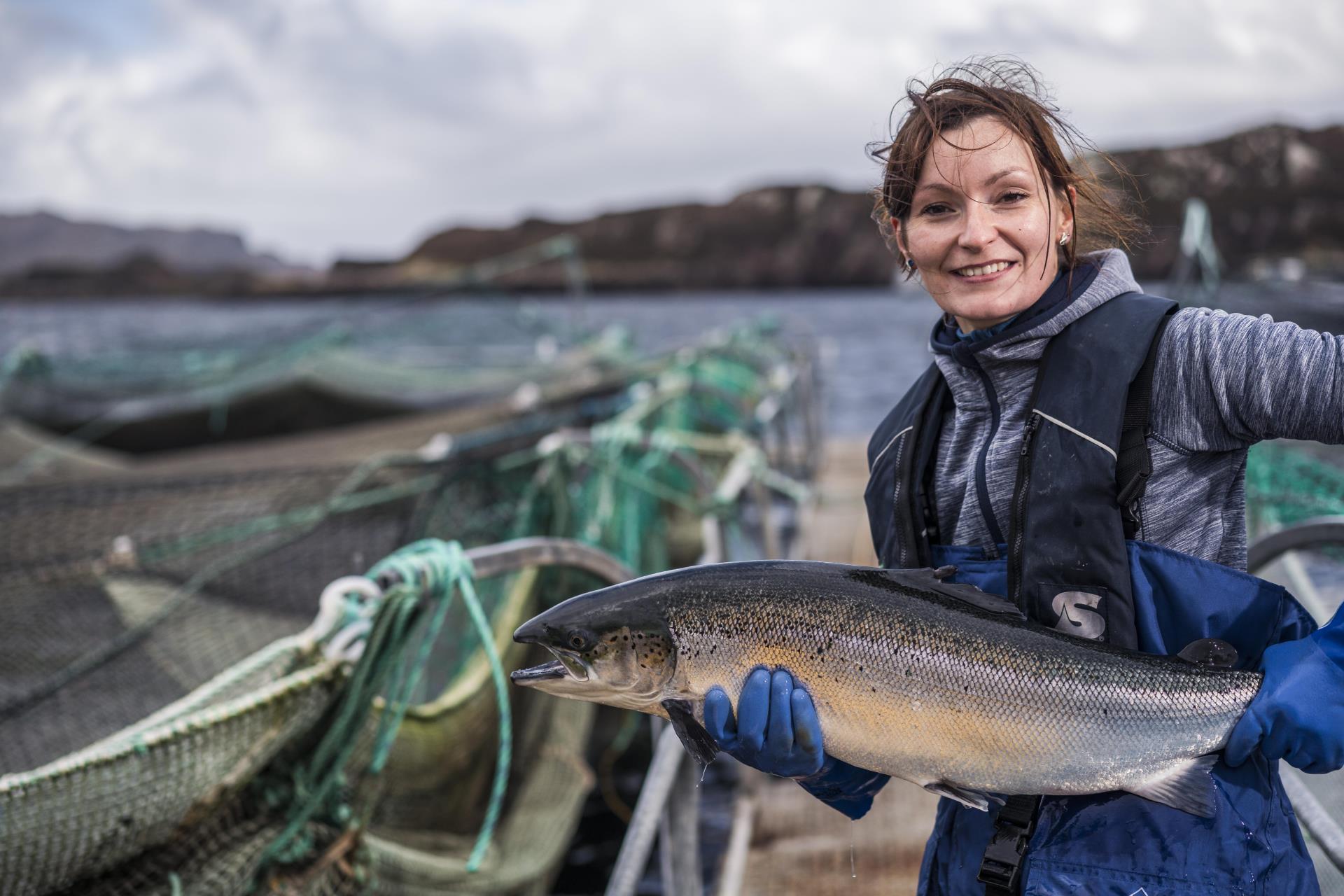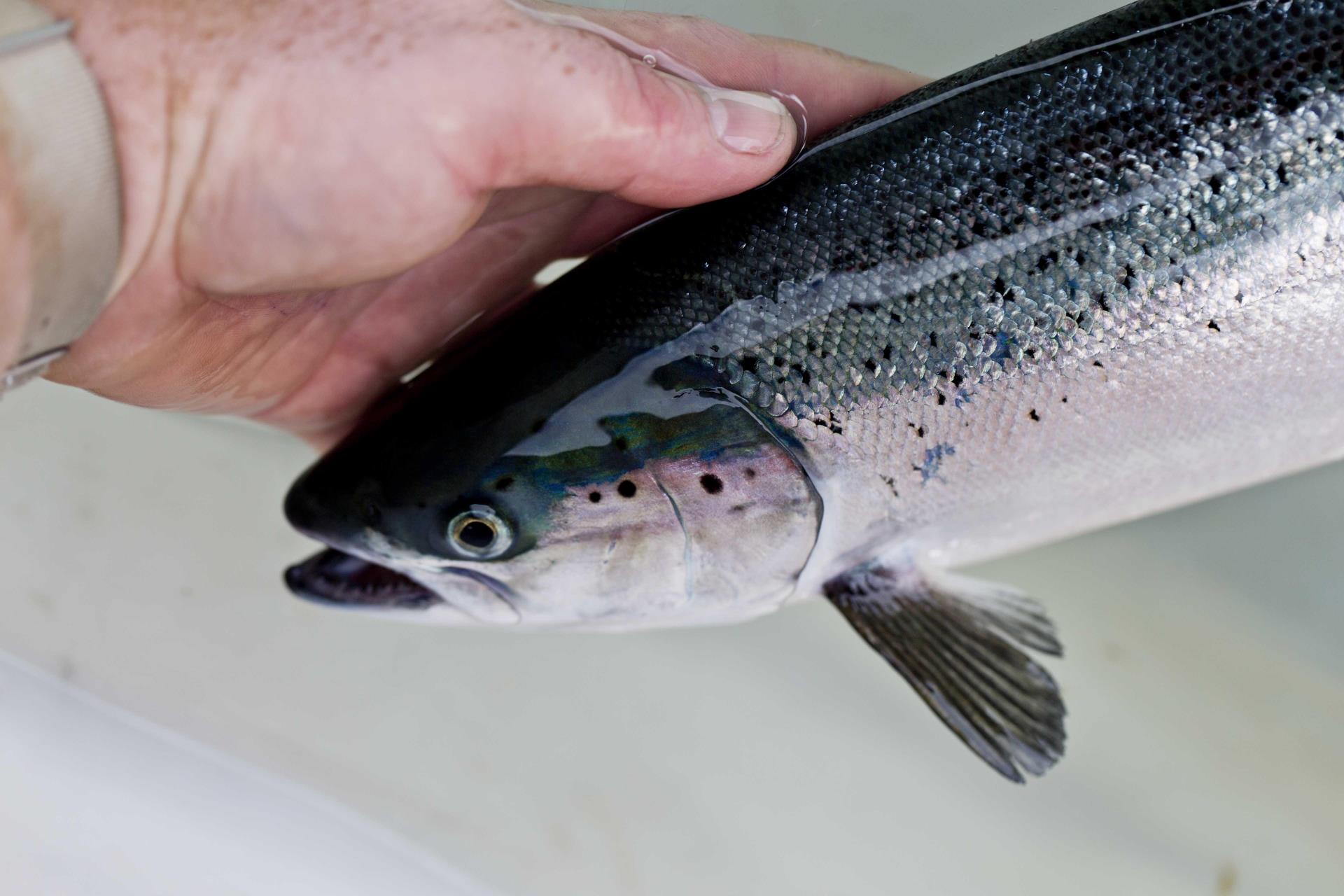The Seaspiracy film has experienced backlash over its claims about the seafood and fishing industry. Here, Julia Bryce speaks to those in the industry to tell their side of the story…
If you haven’t been living under a rock you’ll know one of Netflix’s latest films, Seaspiracy, has caused a stir in the global fishing world with its portrayal of the industry.
The 90-minute production has been created by the team behind 2014 film Cowspiracy, and is directed by Ali Tabrizi, a filmmaker from Kent.
In Seaspiracy Ali travels across the globe with his partner to unearth the effects fishing is having on the environment, uncovers what sustainable fishing is and exposes the lack of human rights for some of those working in the industry.
The seafood sector in Scotland has played a huge part in feeding millions of people throughout the pandemic and it is one of country’s most valuable sectors, generating £301 million GVA in 2018.
Hit hard by Brexit deal which came into force on January 1 this year, and the pandemic in general, with thousands of hotels and restaurants forced to shut up shop, the seafood and fishing industries have seen huge challenges thrown their way.
And this new storm brewing as a result of the Seaspiracy show encouraging individuals not to eat fish is another tsunami on the path to recovery for fishermen desperate to get back on their feet.
A well-controlled sector, fishing in UK and Scottish waters comes with strict regulations limiting who can catch fish, how it can be caught and how much can be taken from natures larder.
One of the main focuses throughout the show was the credibility of sustainable produce and the accreditations associated with seafood.
An MSC spokesperson commenting on the films claims, said: “One of the amazing things about our oceans is that fish stocks can recover and replenish if they are managed carefully for the long-term.
“Examples of where this has happened and stocks have come back from the brink include the Patagonian toothfish in the Southern Oceans or the recovery of Namibian hake, after years of overfishing by foreign fleets, or the increase in some of our major tuna stocks globally.
“And what is even more amazing, is that if we take care of our fish stocks – they take care of us. Research shows that fish stocks that are well-managed and sustainable, are also more productive in the long-term, meaning there is more seafood for our growing global population, which is set to reach 10 billion by 2050.”
Local fisherman reaction
Peterhead fisherman Peter Bruce whose crew of seven sail on the Budding Rose, a white fish fishing boat catching cod, haddock, whiting, coley and hake, has expressed his disappointment with the film in how it has portrayed the fishing industry.
Having worked at sea on fishing boats since 1977, Peter has had his own boat for 31 years and is adamant the Scottish industry has strict restrictions in place to ensure sustainable, safe fishing is taking place.
No #Seaspiracy here just fishing away here in the North Sea as we have done for over 40 years . Yes 40 years and we keep catching fish in the same places ..true sustainable fishing !! pic.twitter.com/YT80jPrujq
— Budding Rose PD418 (@buddingrose418) March 30, 2021
He said: “Things like sharks or anything like that have to be returned to the sea as quickly as possible. It is very seldom, us actually catch one, but when we do it is returned to the sea alive 99% of the time. We’re ahead of the game with a lot of things in Scotland. I was very angry about the messaging of ‘don’t eat fish’ from Seaspiracy.
“Fishing is a global industry and there are problems in some parts of the world, but to tell everyone to stop eating fish is crazy. There are some parts of the world where fish is the only source of protein available.
“Our fishing in the North Sea is very sustainable. I’m proof of that having been fishing since 1977. If it wasn’t sustainable we wouldn’t have a business. There’s so many rules and regulations in the industry. The fishery managers know exactly where we are fishing with satellite tracking on the boat, daily catch reports with our e-catch logbooks, it is so heavily regulated to what it used to be.
“The fact they (Seaspiracy) said you couldn’t have a sustainable fishery is nonsense. The UN have figures on their website show that 68% of fisheries are classed as sustainable. They put out around 76% of the fish that is landed in the world. It seems more like propaganda rather than showing the reality of the industry.”
Bycatch addressed
With bycatch – fish or other marine species which are unintentionally caught while catching certain target species – another focus of the documentary, Peter adds that in Scotland, all fisherman will return anything they catch to sea that they have not been confirmed to land.
He added: “If we catch big common skate, which we get quite regular, they are released back into the sea. I’ve fished for 44 years and I have caught one dolphin in all of that time – and it was completely by accident as the dolphin swam in when we were getting the fish out. We got it out of the net so quick and back into the ocean. The whole crew were happy to see it swimming away.
“A lot of people think fisherman don’t care for nature but we really do. We love seeing the birds, dolphins and other marine life when we’re out.
Video clip from last trip of the @LapwingPD972 coming alongside us . It was a force 6/7 it’s much worse the next couple of days . I hope all the fishermen at sea stay safe pic.twitter.com/xvyVmtRUVP
— Budding Rose PD418 (@buddingrose418) October 31, 2020
“What I will say though is you don’t stop driving if you kill a deer or badger on the road though, do you?”.
Well-known face Jimmy Buchan, who also hails from Peterhead and was a skipper for 33 years (1986-2019), now runs his seafood and fish delivery service Amity Fish Company. The firm sends freshly landed North Sea produce from Peterhead Fish Market and other local boats across the UK for customers to enjoy.
Whike working a skipper, Jimmy designed a new style of net which allowed him to keep his bycatch and produce separate, ensuring only his catch was taken on board.
He said: “I worked on a net design which allowed me to separate my bycatch from my main catch. I was using a panel within the trawl of the net which encouraged the main catch – the nephrops and prawns – to go to the bottom channel, and guided the fish to an upper panel.
“It was so successful that we were actually shooting the top section of the net open and letting all of the bycatch out straight away. Prior to using that you would have ended up catching some of the bycatch.”
Sustainability – 44 years at sea
Sustainability and the ideals behind it was also questioned in the film. According to the Oxford Dictionary, sustainability is defined as: “Avoidance of the depletion of natural resources in order to maintain an ecological balance.”
Which, Peter and Jimmy both argue are what Scottish fishing techniques represent.
In the UK, since 2011, the Sustainable Seafood Coalition (SSC) has been working to ensure all seafood sold in shops and restaurants comes from sustainable sources. The SSC brings together UK retailers, leading seafood suppliers, and food service outlets who follow agreed policies to ensure seafood is responsibly sourced.
Jimmy said: “We are one of the most regulated industries in the Western world. We know every vessel’s movement, have to give prior notification for landing, submit catch reports, and have great policies in place to protect spawning stocks. There’s square mesh panels on the nets to let the young fish escape. We use innovation and expertise to make the industry better.
“We’re not perfect, but which industry is? We’re working towards a better sustainable future. Documentaries like Seaspiracy, in my opinion, do little to help the rural communities which depend on fishing.
“Telling people not to eat fish at all will be at the cost of jobs, livelihoods and investments.
“Sustainable to me is using the information we get from scientists assessing stocks and scientists advising what fisherman can catch. There’s at sea inspections and the Fishing Protection vessel will just appear out of nowhere and you have minutes to accept the boating party who will scrutinise everything you are doing.”
Peter, whose views are similar, says it is all about giving the sea enough time to replenish stocks.
He added: “There’s a lot of discussion about sustainability. For me, it is keeping enough fish in the sea for it to replenish itself and keep producing. And that’s what we have in the North Sea, especially in the northern North Sea.”
Creel fishing and trawlers
In Arbroath, skipper Chris Pattison of Aurora has been working 17 hour days three times a week with his crew of two or three. His boat would usually be out four or five days a week but, due to the coronavirus pandemic he has restricted time on the boat.
The creel fisherman, who starts his day at 3am and is in by 8pm, is disheartened that the film only showed one side of the story.
Seaspiracy targeted trawling boats and claimed they did excessive damage to the environment by dragging nets along the seabed. However, Chris outlines that Scottish waters are heavily protected and the ground commercial trawlers usually operate on is rocky, causing no destruction to the bottom.
He said: “The fishing I do is very sustainable. The boat I’m on is a 12-metre one and I work about 40 metres off the coast. Our gear doesn’t harm the environment at all. There’s no damage to the bottom as they are laid and not dragged.
“Telling people not to eat fish at all will be at the cost of jobs, livelihoods and investments.”
Former skipper Jimmy Buchan.
“Things like the claims that the seabed is being damaged by commercial trawlers, that’s not right either because the bits of ground these trawlers are targeting is specific ground. For cod you’re targeting a harder bottom so you’re not really affecting the bottom – it is more a stone, rocky bottom. It is the same with lobsters, you’re causing no destruction to the bottom.
“Everything that comes up in a creel, it is alive when it arrives on the boat, so any juvenile crabs, we put them back into the sea to carry on living, so it is very sustainable. We also have a flap on the creel which allows young lobsters and crabs to get out of it.
“I’m only doing creels, and because fishing has been regulated so much, the industry now has such a small quota to ensure the fish stocks are high continuously.
And with fisherman monitored closely, Chris says that boats and companies are now fined or prosecuted if they are found in illegal waters, which he adds “is more by accident”.
He continued: “A lot of the boats have cameras on them and are monitored by Marine Scotland 24/7. They are all tracked by Electronic Marine Systems every two hours or so and boats have been prosecuted because they have been fishing in illegal areas in the past. It is more by accident than anything else. It shows it works though as people have been fined.
“It was disappointing that the filmmakers didn’t approach fisherman or nations who have quotas for fishing and fish control. It seemed like they picked areas they wanted to and focused on them.”
The fight against plastic
According to Seaspiracy’s Ali Tabrizi and his findings, fisherman’s nets are highlighted as the biggest issue for marine life, stating that 46% of The Great Pacific Garbage Patch in the north Pacific is only polluted by fishing nets.
However, in Scotland, the Scottish Government revealed in a 2020 report that it estimates more than 90% plastic in Scottish seas comes from litter on land. It stated that fishing releases about 20 tonnes (four million pieces) of plastic into Scottish seas each year which is about 2% of the total plastic inputs.
During his time as a skipper, Jimmy worked with Fishing for Litter, a project which helps reduce the amount of marine litter in the sea by fisherman physically removing it. The filled bags are then deposited at participating harbours and disposed of.
Peter, who is currently at sea, is also involved in the initiative.
“We’ve had the Fishing For Litter scheme in Scotland for a while. If any of the boats pick up litter in their nets which can sometimes happen, we take this ashore.
“Fisherman wouldn’t cut nets away as they are so expensive. A net for us is around £15,000 so there’s no way we’d cut away a net.
And responsible !!! Endeavour V keep all waste whether our own or taken aboard pic.twitter.com/uy0rY1NQE8
— a man at sea (@jigster9) March 30, 2021
“What does sometimes happen is we can get into a wreck and a bit of net will break away. But we will always try and retrieve it.
“Just two weeks ago we dropped a bit of gear and we spent two or three hours until we retrieved it. It maybe happened years and years ago, but the practices have totally changed.”
Balmedie Beach
Journalist Julia Bryce took a 5K walk along Balmedie Beach. Here is some footage of the plastic she found along the way. This video was recorded at 6pm on Monday April 12 and showcases the plastic she found at that time.
MSC
And while it wasn’t just the Marine Stewardship Council (MSC)’s “Blue Fish Label” that was the only accreditation to be questioned in the film, it is the UK’s best-known scheme and requires rigorous assessment.
The certification is also based on stringent science-based criteria before certifying anything as sustainable.
Peter added: “Before we could get MSC for our haddock, it went through a process for two to three years. The fishery is totally analysed. MSC has been a good thing for the Scottish industry. You have to go through a lot of checks before you can get MSC approval.
“MSC took their accreditation from North Sea cod because it was cut. That just proves they are looking into fisheries all the time as they took the accreditation away for mackerel too.”
Scottish salmon
Scottish salmon was a hot topic in the film, too, after viewers witnessed salmon suffering from excessive sea lice infection which Seaspiracy outlined was filmed at a Scottish Highlands salmon farm.
Dr Iain Berrill of the Scottish Salmon Producers Organisation (SSPO), said: “While this film raises some very important issues, the claims made against salmon farming in Scotland are wrong, misleading and inaccurate. As a result, this part of the documentary was simply privileged activism masquerading as investigatory filmmaking.
“To take just a few of these exaggerated and emotive claims – salmon farming is not responsible for degrading wild fish stocks for use in feed, lice on our fish are not out of control and claims equating organic waste from salmon farms to human waste are misleading and have been repeatedly debunked.
“Farmed Scottish salmon swim and shoal freely in high-quality, cool seawater that is constantly being refreshed by tides and currents.
“Aquaculture is a key part of the answer, not the problem, with regards to concerns over wild fish stocks. The United Nations has recognised this fact which is why it supports fish farming as crucial to feeding the world’s growing population, now and in the future.”
The mortality rate for Scottish salmon in 2020 was 14.5% and although salmon pens can vary in size and shape, in Scotland, salmon pens are stocked with no more than 1.5% fish to 98.5% seawater.
According to SSPO sea lice levels remain consistently low at just 0.52 per fish in 2020, that’s just one female louse (a naturally occurring pest found in seas and on healthy fish around the world) for every two fish reared.
In an interview on BBC Scotland’s The Nine show, Tavish Scott of SSPO addressed Don Staniford, a campaigner from Scottish Salmon Watch, and the issues regarding sea lice and the colouring of salmon.
He said: “There is a naturally occurring compound in salmon feed which produced vitamin A which produces that wonderful pink tint to the flesh and helps the fish’s immune system and it is very important for their growth.
“The industry is heavily regulated by government and is audited and inspected by national and international organisations on behalf of consumers – that’s a good thing and we’re completely transparent about that.”
"Our industry is very heavily regulated by government… and that's good thing. We are very open and transparent about that."
You might have caught our CEO @tavishscott on The Nine. Here you can hear Tavish talking about the need for accurate information for consumers: https://t.co/Y0hKHpOb3G
— Scottish Salmon Producers Organisation (@SSPOsays) April 7, 2021
Seaspiracy is a film about the global seafood and fishing industry and while many Scottish fishermen agree that not all countries have the best practices, they will argue that Scotland’s duty of care to the animals it is home to, the environment and safety of staff working in the industry are of the highest importance the industry bodies they report to.
For more food and drink content…
